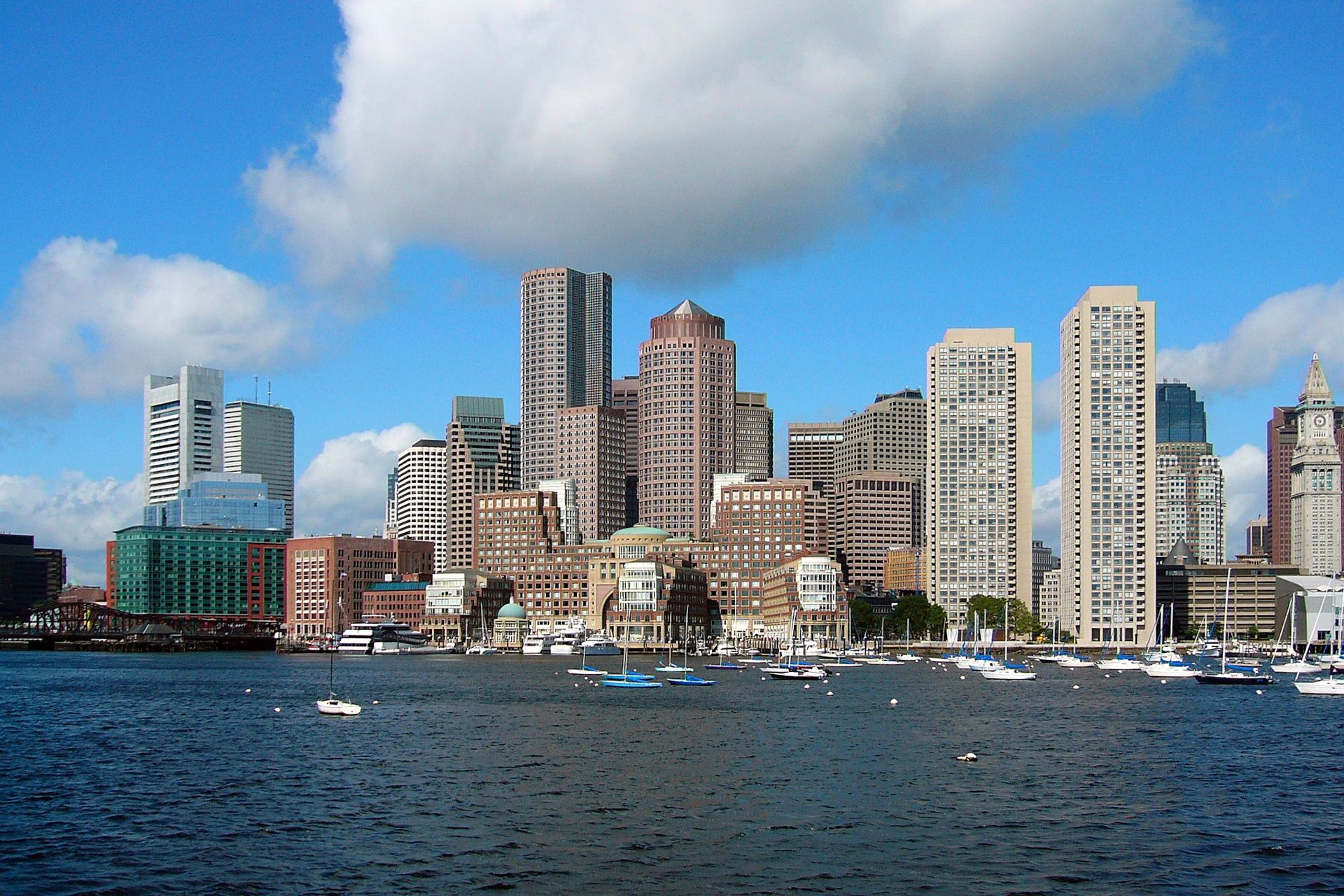Whale Watching in Boston: A Memorable Experience Awaits
Whale watching in Boston is an unforgettable experience that brings you up close and personal with some of the ocean’s most majestic creatures. As you embark on your adventure, you’ll have the opportunity to witness various species of whales in their natural habitat, including humpbacks, finbacks, and minkes.
So, if you’re looking for an exciting and educational activity during your visit to Boston, whale watching is definitely worth considering. It’s a once-in-a-lifetime experience that allows you to connect with these fascinating sea giants while learning more about the wonders of our ocean.
Basics of Whale Watching in Boston
Boston is a prime location for whale-watching tours in the USA, as it offers close proximity to the Stellwagen Bank National Marine Sanctuary. This area is abundant with humpback whales, finback whales, minke whales, dolphins, and other marine life. In this section, you’ll learn some basics about whale watching in Boston.
The best months to embark on a whale-watching tour in Boston are from May to October. During this period, whales migrate to Massachusetts, providing optimal sightings. Numerous high-quality whale watching tours depart from various docks in the city, ensuring you have plenty of options when planning your trip.
When selecting a tour, you’ll find multiple reputable companies to choose from, such as Boston Harbor Cruises, which partners with the New England Aquarium. Many tours also provide trained naturalists on board to educate you on these magnificent creatures, making your experience enjoyable and informative.
Here are a few essential tips for your upcoming whale-watching adventure:
- Book in advance: Popular whale-watching tours can fill up quickly, so it’s a good idea to secure your spot ahead of time.
- Bring layers: Although the weather may be warm on land, it can get quite chilly out on the water. Dress in layers to stay comfortable during the excursion.
- Protect your skin: With the sun reflecting off the water, applying (and reapply) sunscreen and wearing sunglasses to protect your skin and eyes is crucial.
- Stay prepared: Don’t forget to pack a camera, binoculars, and snacks to make the most of your day out at sea.
the best whale-watching tours near Boston
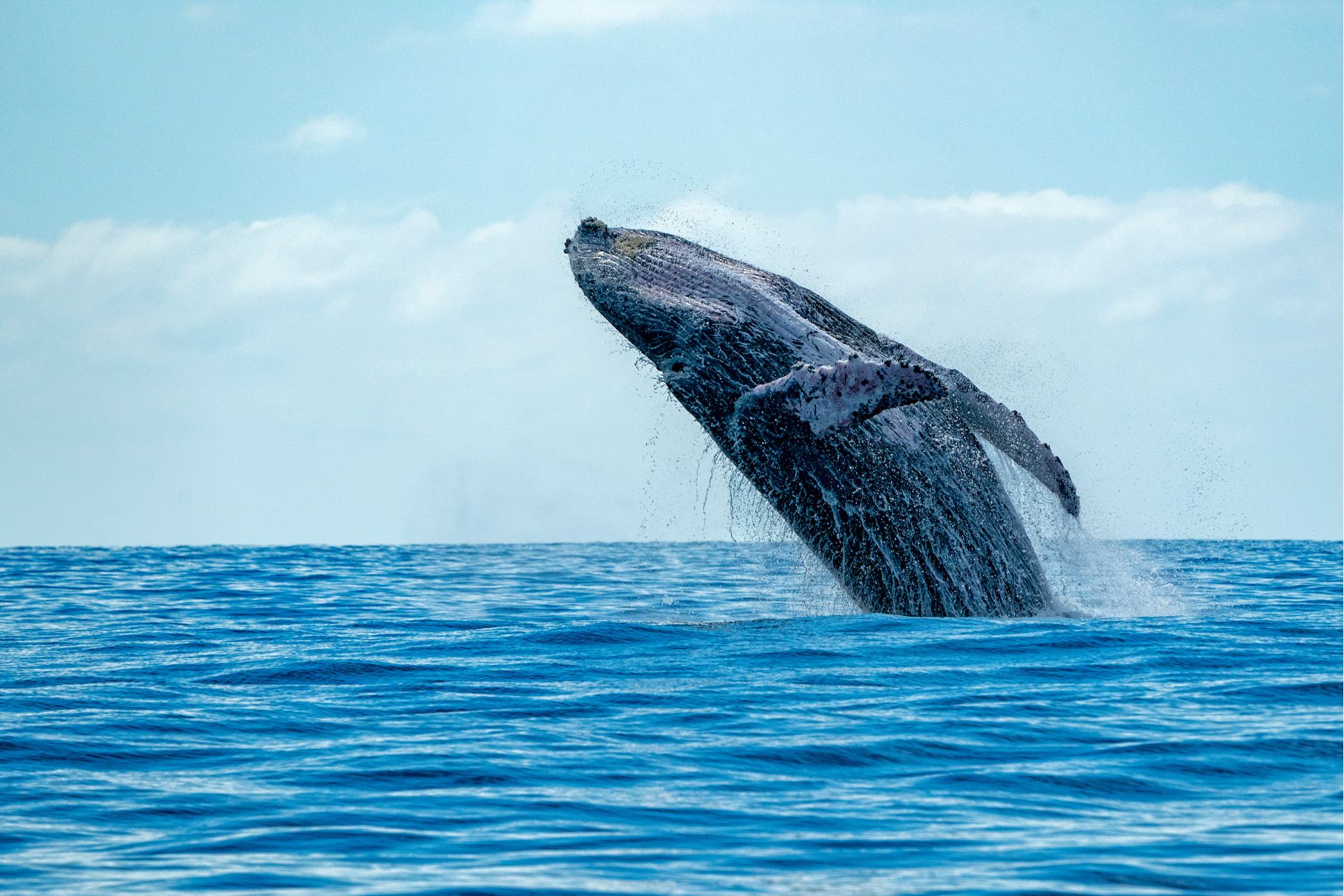
Boston Harbor Cruises
Discover the Majesty of Whales with Boston Harbor Cruises! Enjoy comfortable, state-of-the-art vessels and expert guidance. A breathtaking educational experience awaits in the heart of Boston. Book your unforgettable journey today!
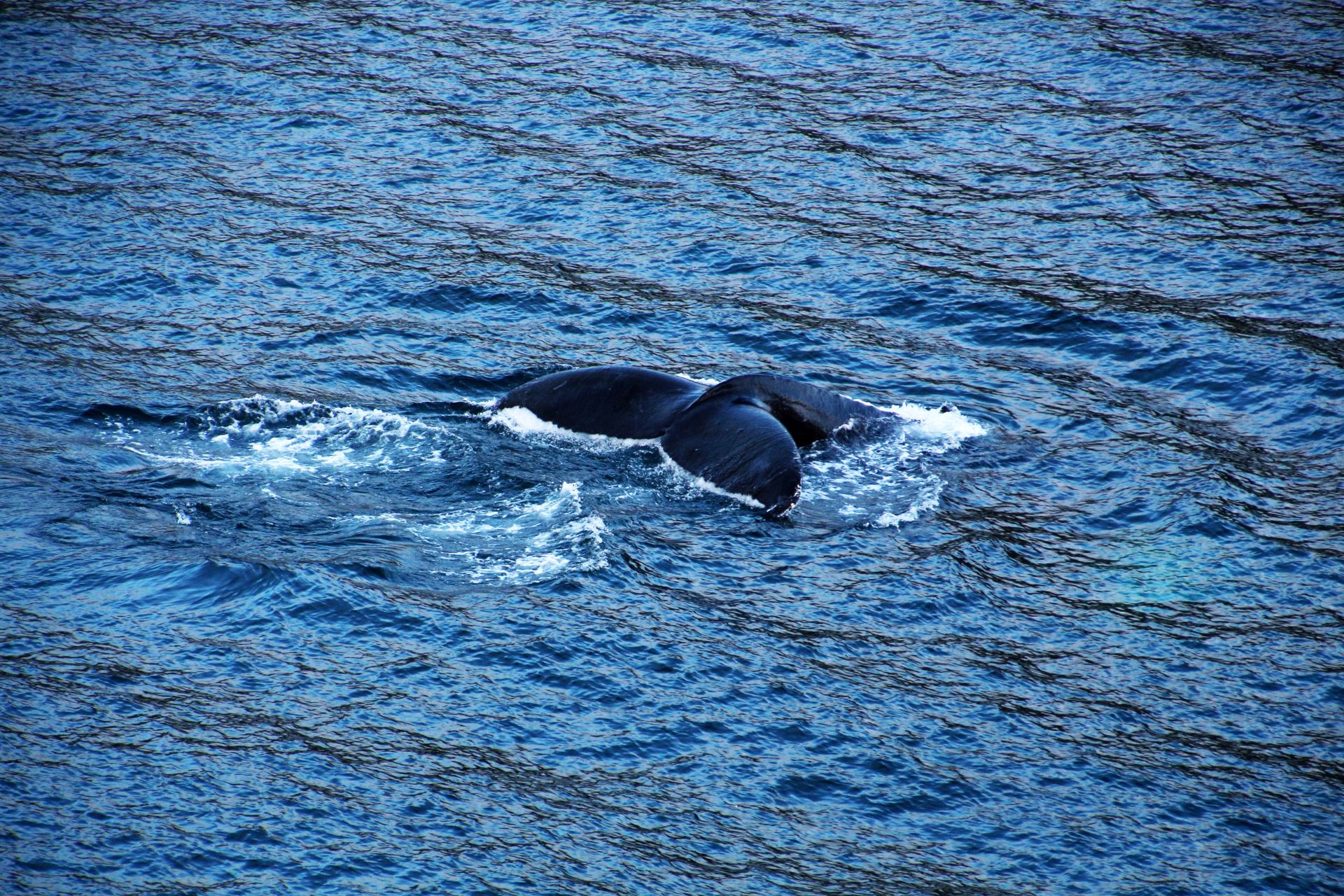
7 Seas Whale Watch
Experience the Ocean’s Wonders with 7 Seas Whale Watch! Set sail for an extraordinary adventure where majestic whales take center stage. Book your voyage with 7 Seas Whale Watch today and prepare to be amazed!
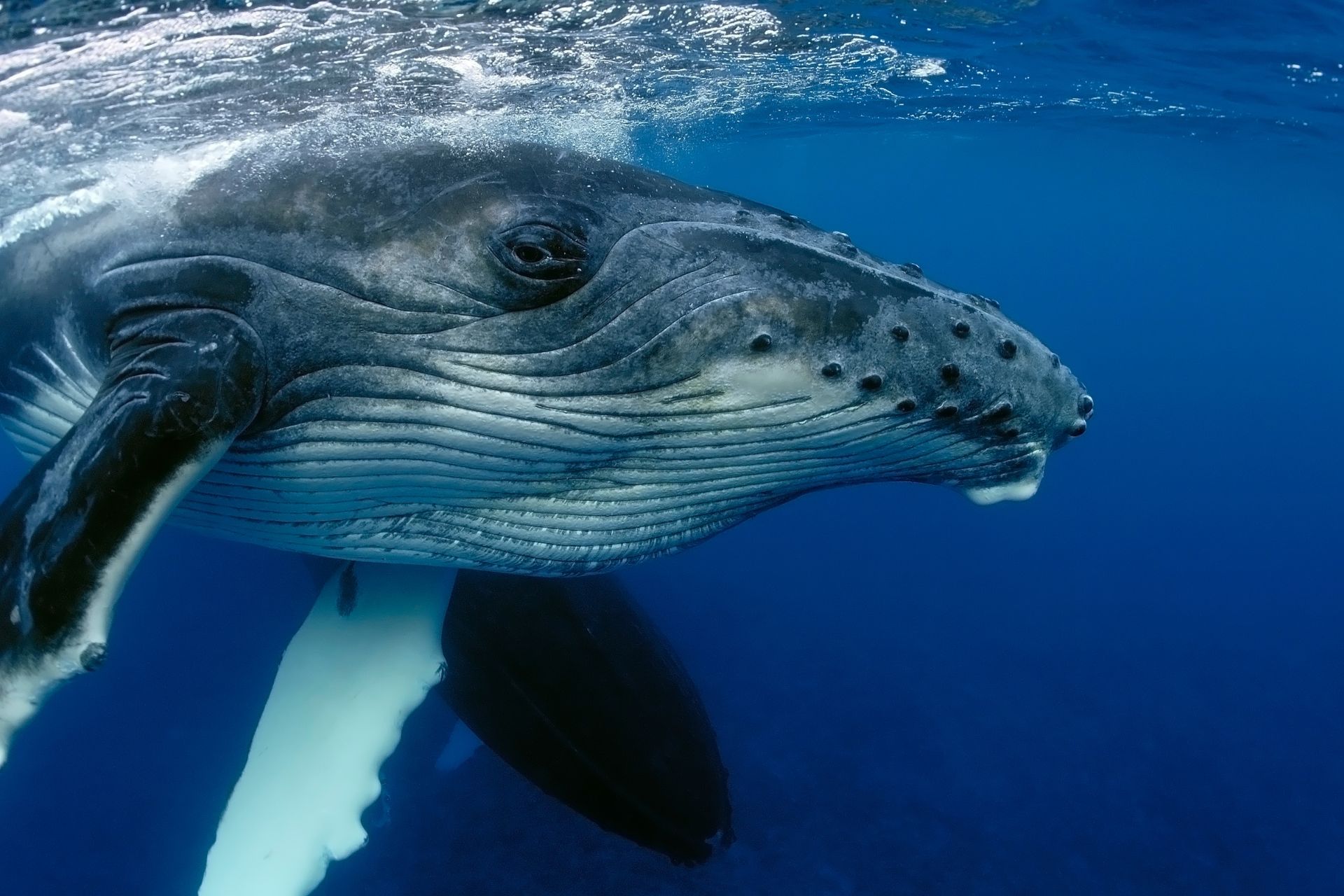
Cape Ann Whale Watch
Witness the majestic beauty of whales in their natural environment on our renowned whale-watching tours. With experienced guides and top-notch vessels, we bring you closer to these magnificent creatures for a truly awe-inspiring experience. Perfect for families and nature enthusiasts alike.
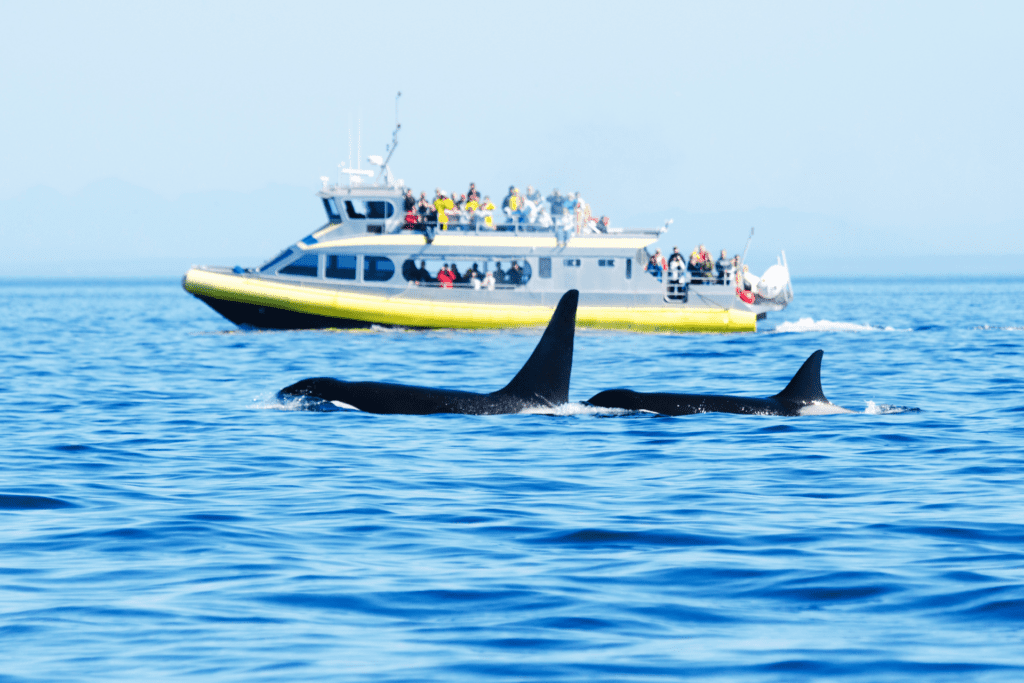

Captain John Boats
Witness the majestic beauty of whales in their natural environment on our renowned whale-watching tours. With experienced guides and top-notch vessels, we bring you closer to these magnificent creatures for a truly awe-inspiring experience. Perfect for families and nature enthusiasts alike.
Best Time for Whale Watching
When planning your whale-watching trip in Boston, choosing the right time to maximize your chances of spotting these majestic creatures is important. The most favorable months for whale watching in Boston are between May and October. During this period, sightings are practically guaranteed due to the migration patterns of the whales.
The weather plays a significant role during whale watching season. You’ll generally experience milder temperatures in May and June, while the summer months of July and August are typically warmer. September and October offer a mix of warm and mild temperatures as the season transitions to fall.
No matter when you decide to go, always remember to bring appropriate clothing, as conditions can vary while out on the water.
Regarding scheduling your trip, it’s best to opt for morning departures as the sea tends to be calmer during the early hours. This is especially helpful when trying to spot a whale in the distance. Most whale-watching tours offer multiple departure times throughout the day, allowing you to pick a time that suits your needs.
Some highlights to expect during your whale-watching experience include witnessing humpback whales, minke whales, and even endangered North Atlantic right whales. Depending on the time of the season you go, you may also have the chance to see other marine life, such as dolphins, seals, and various seabird species.
To make the most out of your whale-watching adventure, it’s a good idea to research the specific departures and highlights offered by the tour operator you choose. This way, you can ensure a memorable and awe-inspiring experience in the waters surrounding Boston.
Species You Can See
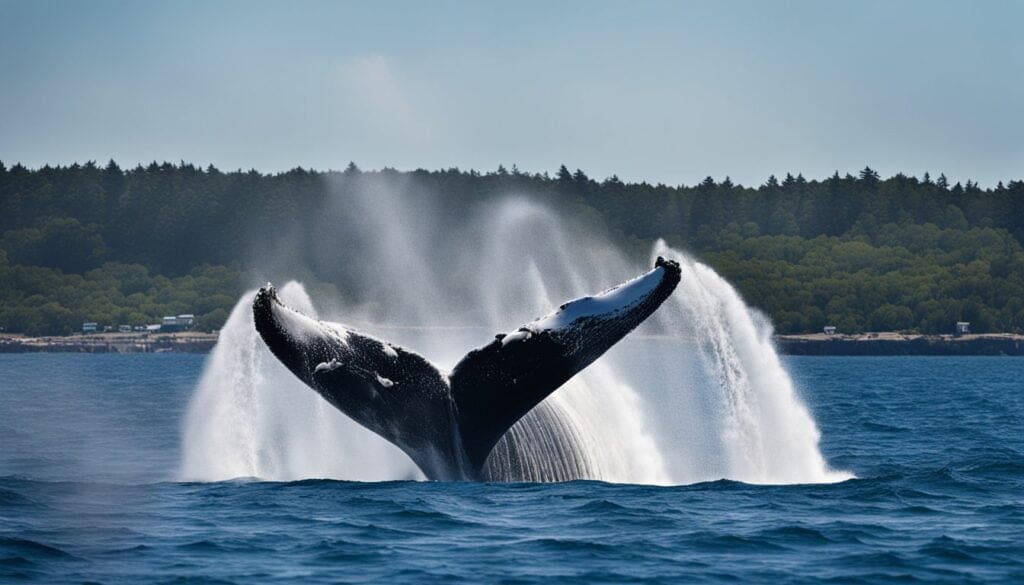
When embarking on a whale-watching tour in Boston, you can expect to witness a diverse range of marine life. The most commonly sighted species include humpback whales, fin whales, minke whales, and the critically endangered North Atlantic right whales. These magnificent creatures can often be spotted in the waters of the Stellwagen Bank National Marine Sanctuary near Massachusetts Bay.
- Humpback whales are known for their acrobatic displays and impressive size, reaching up to 50 feet in length. While on your tour, you might be fortunate enough to observe these gentle giants breach the surface or showcase their distinctive fluke.
- Fin whales are the second-largest whale species on Earth, characterized by their sleek, streamlined bodies. These fast swimmers can reach speeds of up to 23 miles per hour, making them an awe-inspiring sight.
- Minke whales are the smallest baleen whales you will likely encounter on your Boston whale watch. Despite their smaller size, they are still an incredible sight to behold as they gracefully glide through the water.
- North Atlantic right whales are a critically endangered species, with only about 400 individuals remaining. Spotting one of these rare and majestic animals is truly a once-in-a-lifetime opportunity.
In addition to these remarkable whales, you may also encounter several species of dolphins and porpoises, such as Atlantic white-sided dolphins and harbor porpoises. These playful and highly intelligent marine mammals can often be seen leaping and frolicking in your boat’s wake.
As you set sail, watch for other marine creatures and seabirds that might join the spectacle. Pilot whales, various sea birds, and other fascinating marine life may be spotted depending on the season and the conditions of your voyage.
With a wealth of incredible marine life, your Boston whale-watching experience will surely be memorable, giving you a deeper appreciation for these magnificent animals and their ocean home.
Key Locations
Several key locations must be considered when planning for whale watching in Boston. The city offers numerous opportunities to encounter these majestic creatures up close. In this section, we’ll guide you through some of the top spots for whale watching in and around the area.
The Long Wharf is one of the most popular departure points for whale-watching tours. Located just a short walk from the New England Aquarium, it is the primary location for Boston Harbor Cruises. These cruises take you directly to the Stellwagen Bank National Marine Sanctuary, a marine protected area teeming with marine life, including humpback, minke, and fin whales.
Another nearby point of departure for whale-watching tours is Central Wharf. This location is home to the renowned New England Aquarium, where you can embark on a whale-watching journey and learn about these magnificent creatures before setting sail.
Apart from Boston Harbor, a few other locations, such as Salem and Newburyport to the north, offer fantastic opportunities for whale-watching adventures. Venturing south, Plymouth is another popular departure point for whale watching, while Cape Cod and its surrounding islands are just a short drive away. These southern locations allow you to explore Massachusetts Bay and enjoy sightings of whales and white-sided dolphins during the season.
Adventures await on your whale-watching journey no matter which direction you choose to head in. From the bustling harbor in the city’s heart to the picturesque Cape and its stunning islands, these locations offer a memorable experience. So grab your binoculars, dress in layers, and be prepared for an exhilarating adventure on your next whale-watching tour in Boston and its surrounding areas.
Tour Operators
When it comes to organizing your whale-watching adventure in Boston, you have several reputable tour operators to choose from. These companies offer exciting opportunities to observe these majestic creatures in their natural habitat. Read on for a brief overview of some of these tour operators.
Boston offers several whale watching tours departing from the Downtown Boston Waterfront, which provide a thrilling experience of spotting whales off the coast of Boston. The tours typically last about 3 hours and offer the opportunity to see magnificent creatures such as Humpback and Finback whales close-up from the deck of your boat and spot White-Sided Dolphins frolicking in the waters. Some of the best whale watching tours near Boston include Boston Harbor Cruises, 7 Seas Whale Watch, Cape Ann Whale Watch, and Captain John Boats. Boston Harbor Cruises has partnered with the New England Aquarium for their whale watching tours, and naturalists from the Aquarium join the tour to share their whale knowledge with you and answer your questions. It’s important to bring sunscreen, sunglasses, and a hat, as the sun reflects on the water and may feel much stronger than on land2. The tours operate from spring through fall, and it’s recommended to book in advance, especially during peak season
One popular option is Boston Harbor Cruises, which provides whale-watching tours departing from the Boston Harbor. With them, you can expect a comfortable and thrilling experience aboard their specially designed boats that cater to passengers of all ages. Booking your trip is easy—you can simply check availability online and reserve your spot. Also
Another outstanding company, the New England Aquarium Whale Watch, offers convenient departures from Central Wharf. Their tours feature the only boats in Boston specifically designed for whale watching, and they even offer onboard activities like trivia, paper, and crayons for kids, a snack bar, and restrooms to enhance your experience.
Going on a Tour
Whale watching in Boston offers an unforgettable experience, especially during the peak months of May to October. Here are some essential tips and information for embarking on a whale-watching tour to make the most of your trip.
First, choose a reputable whale-watching tour company that suits your preferences. Many tours operate from the city’s docks, with some partnering with the New England Aquarium, such as Boston Harbor Cruises. These tours typically provide a naturalist guide, experienced in marine life, to offer informative and engaging commentary throughout your journey.
During your tour, you’ll board a high-speed catamaran designed to comfortably accommodate passengers and equipped with spacious decks for optimal viewing. Don’t forget your camera and binoculars, as they will undoubtedly enhance your observation experience once you reach the open waters of the Stellwagen Bank National Marine Sanctuary.
Before heading out, check the tour’s accessibility options, as some vessels may be wheelchair and stroller accessible. Restrooms and a galley serving food and beverages should also be available on board to ensure a comfortable experience during your time at sea.
Once you have selected your Boston whale-watching tour, be sure to have your voucher handy as you make your way to the specified meeting point. The tour typically ends at the original departure location, so there’s no need to worry about finding transportation back home.
As for your attire, wear comfortable shoes and bring a light sweater, even during the summer months, as it can get chilly on the open water. Don’t forget to apply sunscreen and wear sunglasses to protect yourself from the sun’s rays.
Must Know Info
Before embarking on your whale-watching adventure in Boston, gathering some information is essential to make the most of your experience.
First and foremost, find a reputable tour company that operates whale-watching tours from Boston. These tours will typically take you to the rich feeding grounds of the Stellwagen Bank Marine Sanctuary, a popular hotspot for humpback whales, finback whales, minke whales, dolphins, and other marine life.
As you venture out on a boat, you’ll have the opportunity to learn from a naturalist on board who will educate you about the whales and their behavior, as well as the importance of conserving these magnificent creatures. The best part of these excursions is witnessing the various species of whales leaping out of the water and gracefully returning to the ocean depths.
When planning your trip, consider using public transportation to reach the starting point of your tour. The MBTA Blue Line conveniently connects you to the waterfront area, where most whale-watching tours depart.
If you’re driving, several parking garages are available near the tour departure locations but be prepared for congestion around the waterfront surface artery and Cross Street.
For accommodations, the Marriott Hotel near the Gov’t Center/Aquarium is a popular choice due to its proximity to the departure points for whale-watching tours and other attractions. If you’re flying into Logan Airport, consider using the Sumner Tunnel for a faster connection to downtown Boston.
Remember to dress appropriately for your whale-watching tour, as temperatures can be cooler on the water than inland. Layered clothing, comfortable shoes, waterproof jackets, and hats are recommended. Don’t forget your camera to capture the unforgettable moments of your experience.
By being mindful of these essential tips, you will surely have a memorable and enjoyable whale-watching adventure in Boston.
Weather Conditions and Tips

When planning your whale-watching expedition in Boston, it’s essential to consider the weather. The prime whale-watching season in Boston stretches from May to October, coinciding with the warm North Atlantic summer when whales migrate to these waters. You’ll want to watch daily weather conditions for the most enjoyable experience during this time.
On days with good weather, you can expect calm seas and clear skies, enhancing your chances of spotting whales and getting great photographs. Don’t forget to protect your skin by applying sunscreen and wearing sunglasses, as the sun will reflect off the water.
If you happen to be visiting Boston on a rainy day, whale-watching might still be possible. The rain won’t bother whales, but your comfort level and visibility may be affected. Be prepared with waterproof clothing, non-slip shoes, and a waterproof phone case or camera. Check for any updates on cruise cancellations due to weather conditions beforehand.
Smooth sailing is not always guaranteed out on the open sea, so coming prepared is essential if you experience motion sickness. Here are a few tips to help prevent or manage motion sickness during your whale-watching adventure:
- Take motion sickness medication or wear acupressure wristbands before the trip
- Keep your focus on the horizon or distant objects
- Avoid heavy meals, alcohol, or smoking before and during the excursion
- Stay in well-ventilated areas of the boat and choose a seat in the middle where motion is reduced
By keeping these aspects in mind and adapting accordingly, you’ll be able to make the most of your whale-watching experience in Boston, regardless of the weather conditions on that day.
Observation and Learning
Observation on Vessel
When embarking on a whale-watching tour in Boston, you can expect to enjoy spectacular views from the comfort of a vessel’s outdoor decks. Equipped with binoculars and a camera, you will be able to witness impressive marine life in their natural habitat while also marveling at beautiful sea birds soaring overhead. Many tours, like the ones that depart from Central Wharf, provide comfortable settings with ample seating areas that allow you to focus on your surroundings and absorb the memorable experience.
Learning About Marine Life
A significant aspect of whale-watching tours is the educational component. These tours are often accompanied by knowledgeable naturalists or marine biologists, providing commentary throughout the trip. As you observe different marine creatures and their behavior, you will gain a deeper understanding of the importance of these majestic animals and their role in the ecosystem. A naturalist guide will help you identify various species, share fascinating facts, and answer any questions you might have during the tour.
Community Engagement
Whale-watching tours in Boston not only offer a thrilling and educational experience for visitors, but they also contribute to the local community by promoting conservation efforts and supporting ongoing research. Many tour companies collaborate with research institutions and ensure responsible tourism practices. By participating in these tours, you actively engage with the community and contribute to preserving and understanding marine life.
As one of the top things to do in Boston, whale watching offers a unique blend of observation, learning, and community engagement. Embark on this extraordinary adventure and immerse yourself in the wonders of the ocean and its inhabitants.
Protection and Conservation
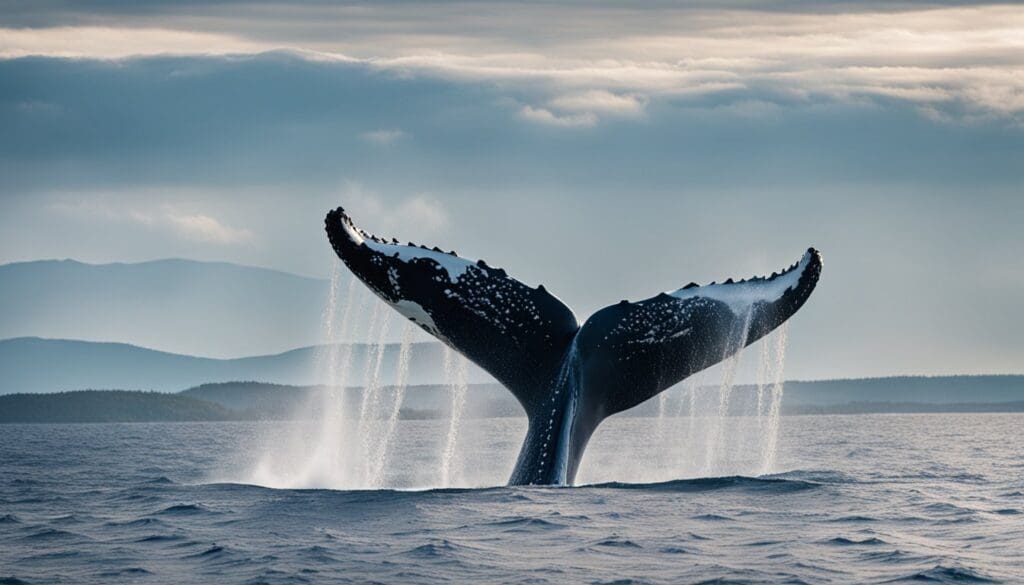
When you embark on a whale-watching trip in Boston, you’re enjoying an unforgettable experience and contributing to the ongoing efforts in whale protection and conservation. The organizations and companies involved in whale watching adhere to strict guidelines to ensure the safety and well-being of these magnificent marine creatures.
As a vital part of conservation efforts, whale-watching tours often collaborate with sanctuaries that play a crucial role in preserving and protecting the whales’ natural habitat. These sanctuaries foster a safe environment for diverse marine species to thrive, including the endangered North Atlantic right whales and humpbacks.
Onboard, you’ll often find a knowledgeable naturalist who can provide you with fascinating information about various whale species, their behaviors, and their habitats. They can also share insights on the conservation measures taken to ensure the sustainability of these extraordinary creatures.
- Right Whales: The critically endangered North Atlantic right whales have received significant attention recently due to their dwindling population. Efforts like the Right Wind project involve partnerships between conservation groups and renewable energy companies to protect these whales while developing offshore wind energy.
- Humpback Whales: As one of the most commonly sighted whales during Boston whale-watching tours, humpback whales are known for their acrobatic displays and distinctive songs. While their populations have improved compared to the past, they still rely on conservation measures to maintain healthy numbers.
It’s important to remember that during your whale watching tour, you should be respectful of the animals and their habitats. By following the guidance of the tour operator, you’re supporting the protection and conservation of these wonderful whales for future generations to admire and enjoy.

